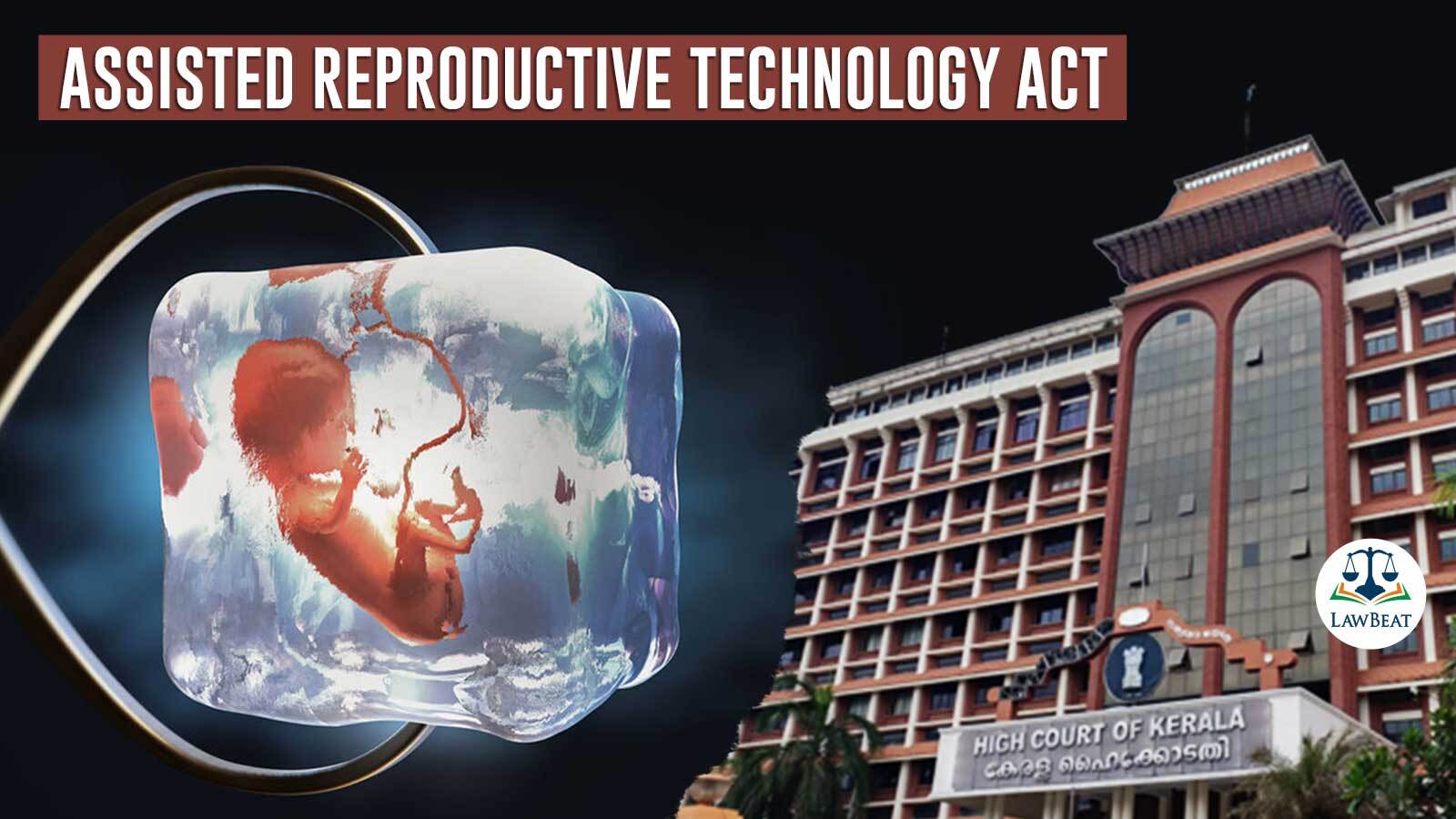"Right of embryo, kept frozen for past 8 yrs to develop into foetus, cannot be stultified by S. 29 of Assisted Reproductive Technology Act": Kerala High Court

While allowing the transfer of the embryos belonging to the petitioner from one hospital to another, Justice VG Arun of the Kerala High Court held that the provisions of Assisted Reproductive Technology (Regulation) Act do not prohibit such transfer.
While allowing the transfer of the embryos belonging to the petitioner from one hospital to another, the Kerala High Court held that the provisions of Assisted Reproductive Technology (Regulation) Act do not prohibit such transfer.
Justice VG Arun further held, that the right of an embryo, which is kept frozen for the past 8 years to develop into a foetus and be born, cannot be stultified by relying on the provisions of the Assisted Reproductive Technology (Regulation) Act, 2021(the Act) which has no application.
Court further observed that the main issue for consideration before it was:
"Life inside a human embryo remains frozen, awaiting its opportunity to be born as a child to its parents; the petitioners. Meanwhile, the State brings out well-meaning legislation viz, the Assisted Reproductive Technology (Regulation) Act, 2021. Will the new enactment have an impact on the Assisted Reproductive procedure, which the petitioners now want to continue, is the question."
Court was hearing a petition moved by a couple who got married in 2007, and even after 15 years of marriage were unable to conceive. So, they opted for infertility treatment under assisted reproductive procedures at the Craft hospital.
The case of the petitioner is that as part of the procedure, the couple, through the Oocytes Retrieval procedure, had preserved four fertilized eggs stored at the Craft hospital in September 2014, and requested to transfer the frozen embryos to another Sabine hospital in January 2022.
During the interregnum, the Assisted Reproductive Technology (Regulation) Act, 2021 had come into force, bringing restrictions in connection with Assisted Reproductive Technology.
Therefore, the Craft Hospital while replying to the transfer of the embryos, stated that it is not permissible to transfer them after the introduction of the aforementioned Act.
Hence, the petitioners moved the high court seeking relief through their present petition.
Counsel appearing for the petitioners contended that since the National and State Boards envisaged under the Act are not constituted, the petitioners or the Sabine hospital cannot approach the Board seeking permission for effecting the transfer.
It was further contended that the maximum period for which embryos can be preserved is ten years and eight years having elapsed already, the petitioners will be put to undue prejudice and misery if the transfer is not permitted.
Counsel appearing for the Sabine hospital argued that the hospital has all necessary technological facilities for storing the embryos and the service of specialist doctors for continuing the assisted reproductive process.
Court presumed that the Craft hospital had refused to transfer embryos to the Sabine hospital relying on Section 29 of the Act, which reads as follows:
Section 29, there is a prohibition against the sale, transfer, or use of gametes, zygotes, and embryos, or any part thereof or information related thereto, directly or indirectly to any party within or outside India, except in the case of transfer of own gametes and embryos for personal use with the permission of the National Board.
However, Court opined that Section 29 does not prohibit such transfer.
Court observed, “A scrutiny of the provision shows that the intention is to prevent/restrict the sale, etc. of human gametes, zygotes, and embryos, and in the present case there is no such transfer, as there is no third party involved.
As the embryos were of the commissioning couple, therefore, Court directed Craft hospital to transfer the embryos to Sabine hospital, and accordingly, it was directed to collect and transfer the embryos to its Assisted Reproductive Technology Bank and preserve the embryos with due care and protection.
Furthermore, Court directed the Sabine hospital to file an affidavit within 5 days affirming that it has all the requisite facilities envisaged under the Act.
Case Title: Rakhi Bose and Anr. v. Union of India and Others.
